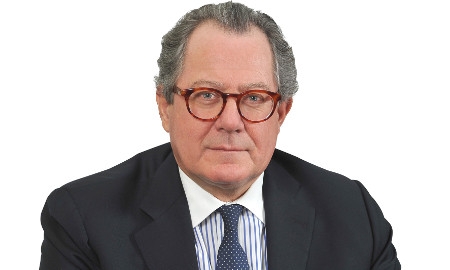Ranking among the six largest banks in Saudi Arabia measured by total assets, Banque Saudi Fransi (BSF) is a prime example of a successful joint venture between a foreign and a Saudi banking group. The partnership between BSF and Crédit Agricole Group, France’s largest bank, dates back to 1977 and has evolved in time to focus on areas like innovation and exchanges of expertise and best practices.
Last year, BSF achieved its best financial results ever, which consisted of double-digit growth in total assets, loan portfolio and investments. The bank currently ranks first in the kingdom for project financing and corporate banking, with a 15% market share, and, through its securities arm Saudi Fransi Capital, it occupies the top position in the equity capital market and one of the top three positions in the debt market. According to Managing Director Patrice Couvegnes, BSF strives to continuously improve its results in the very competitive market that is the Saudi banking sector, but is looking to do so in a sustainable and risk-controlled manner. “BSF’s growth strategy focuses more on ensuring a sustainable and risk-controlled growth rather than reaching a certain market share.”
At the moment, BSF is evaluating its medium-term strategy to expand its retail banking division and target niches such as SME banking. The bank has been participating in the Kafala programme managed by the Ministry of Finance through the Saudi Industrial Development Fund (SIDF) since its inception in 2006, but has recently increased its participation significantly. The programme is a collaboration between the government and Saudi banks, whereby the former acts as a guarantor for loans to Small and Medium Enterprises (SMEs) which are equal in value or less than SAR 2 million (£339,000). In Q1/2013, Banque Saudi Fransi achieved a commendable 30% increase in the number of borrowing SMEs under this programme and aims to further penetrate this market in the near future.
The importance of SMEs to the development of the Saudi economy cannot be overstated, as they are the solution to the need to create more jobs for Saudi nationals and to diversify the economy away from hydrocarbons and into services. However, despite the fact that SMEs account for over 84% of the private sector in the kingdom, their contribution to the economic and social development of the country has been below expectations thus far. Through the Kafala programme, the banking sector can perform an important developmental role by increasing their portfolio of SME clients in an environment of controlled risk, thus boosting economic development across other sectors of the economy.
Islamic banking is an important growth area in a culturally-sensitive country like Saudi Arabia. At the moment, the country accounts for over 10% of global Shariah compliant assets, which are expected to reach £1.145 trillion by the end of 2013. Having grown at rates as high as 25% year-on-year, Islamic banking also plays a fundamental role in reconciling a market-oriented business sector like banking with the religious, social and cultural values of the Muslim communities around the world.
A large percentage of the retail banking in the Kingdom of Saudi Arabia is Shariah compliant. In the case of Banque Saudi Fransi, that percentage stands at over 90% and overall, for all its banking operations, at 50%. The convergence between BSF’s operations and Islamic banking is bound to continue as, according to Mr Couvegnes, “Islamic banking is so important, that BSF will be investing more in it in the medium term, as it will be a growth engine for the bank.”
Looking ahead, Mr Couvegnes foresees solid growth in the Saudi banking sector, supported by the strong fundamentals of the economy, the large-scale infrastructure programmes currently in the works, and the young Saudi population that will be increasingly soliciting consumer loans and mortgage loans, now that the five-pronged Law of Mortgage and Financing has been passed. In order to tap into this growing demand, BSF is working together with its corporate and institutional partners like Saudi Electricity Company, Tadawul (the Saudi Stock Exchange), and telecommunications operators to promote offers focused on affordability. BSF is also looking to build partnerships with real estate developers and the state-owned Real Estate Development Fund to help customers find homes.
Most importantly, the Saudi banking sector will continue to be characterised by a solidity that is unheard of elsewhere, and which was cultivated by the regulator SAMA (Saudi Arabian Monetary Agency) long before the financial crisis of 2008. Consequently, Mr Couvegnes anticipates that “the compliance with Basel III, which is being progressively implemented, will be easily achieved in Saudi Arabia.”

0 COMMENTS